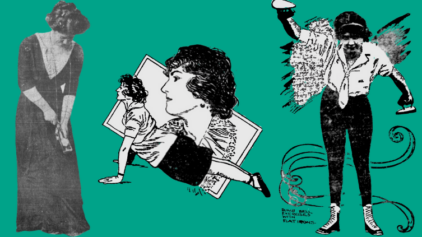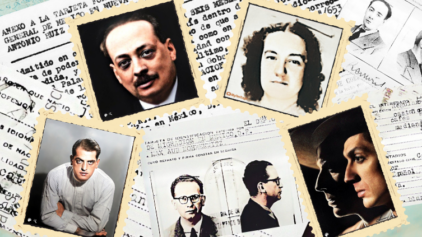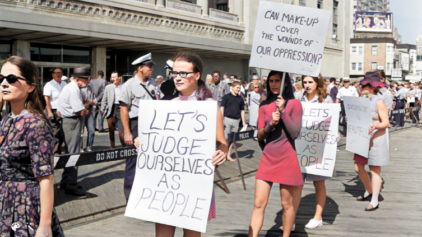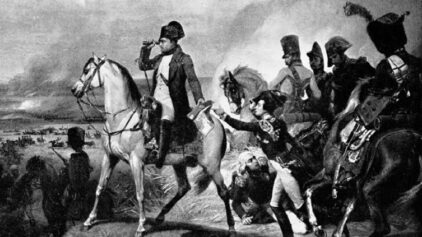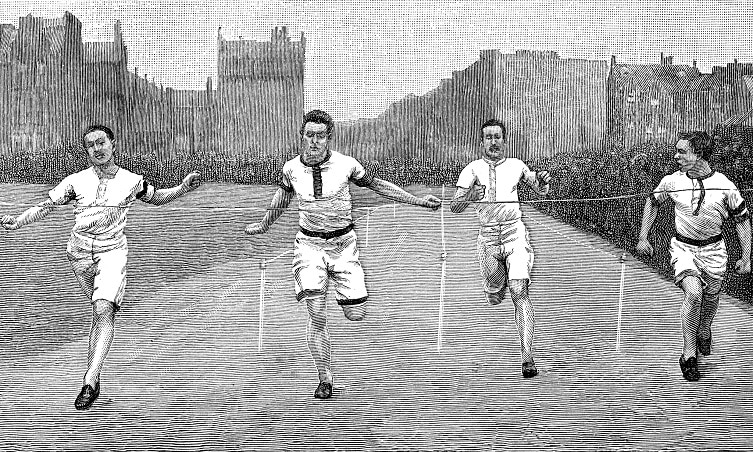

The Olympic Games have their origins in ancient Greece, but the modern revival we know today — the international competition where countries from all over the world send delegations to compete — was founded in the late 19th century. The first modern Olympiad was held in Athens in 1896, and featured 280 participants from 13 countries competing in 43 events. In this historic event, the first person to win a gold medal in a modern Olympic competition was American athlete James B. Connolly.
So why have you never heard of him?
These days, Olympic medalists become national heroes. Even if it’s silver or bronze, winning an Olympic medal is a source of enormous pride — the ultimate glory an athlete can bring home.
It seems that that wasn’t quite true back when the Olympic Games relaunched in 1896. With the Tokyo 2021 Olympics taking place this month, the MyHeritage Research team dove into our newspaper collections to investigate why this athlete didn’t get the recognition he deserved for his pioneering role in Olympic history.
The rise, fall, and rebirth of the Olympic Games
The tradition of holding a sports festival every 4 years at Olympia began sometime in the 8th century B.C.E. and continued until the 4th century C.E. Believed to have been founded by the half-god Hercules, the games included a number of sports competitions and took place during a festival honoring the Greek god Zeus. The event was named after the holy site where they were held: Olympia, a religious sanctuary dedicated to Zeus in southwestern Greece.
After Greece was conquered by the Roman Empire in the 2nd century B.C.E., the quality of the games declined. For example, in 67 C.E., Emperor Nero competed in an Olympic chariot race, and even though he fell off his chariot during the race, he declared himself the winner. In the year 393 B.C.E., after the Roman Empire had adopted Christianity, Emperor Theodosius I issued a ban on all pagan festivals. This effectively outlawed the Olympic games, and this ancient tradition dating back 1,200 years was discontinued.
Fast forward another 1,500 years to the end of the 19th century. A young baron from France, Pierre de Coubertin, visited the ancient site of Olympia and was struck with inspiration. Baron Coubertin was a strong believer in the importance of physical education, and he thought that perhaps the ancient tradition of the Olympic games could be revived as an international athletic competition held every 4 years, where athletes from all over the world would come to compete as equals, regardless of political affiliations or tensions. He proposed his idea at a meeting of the Union des Sports Athletiques in Paris in 1892, and it was approved 2 years later. He founded the International Olympic Committee and began planning the first modern Olympic competition, to be held in the summer of 1896.
Big in Boston… everywhere else, not so much
The first of the renewed Olympic Games apparently didn’t make much of a splash in the United States. All the articles our Research team found about the games from 1896 were printed in Boston, Massachusetts, which was well-represented among the American delegates.
In the following article that appeared in the Boston Globe on April 7, 1896, James B. Connolly appears in one of the headings, but there is no mention of the fact that he won the first gold medal of the modern Olympics the day before.
“Honor to flag,” reads the headline. “American athletes win at Athens games… James B. Connolly Takes the Hop, Step and Jump.”
In the article below from the Boston Post on April 11, athlete Tom Burke — who won 2 gold medals — is highlighted instead:

Graphic from the Boston Post on April 11, 1896. The name “Tom Burke” is written on the kneeling athlete’s uniform. Courtesy of the MyHeritage newspaper collections
Another athlete, Robert Garrett — who also won 2 gold medals — was highlighted in another graphic on page 6 of the same issue.
James B. Connolly returns to a modest welcome
When James — known to friends and family as Jim or Jimmy — returned home, it was to a modest welcome. The following article appeared in the Boston Post on May 15:
“Connolly Home: Athenian Winner Arrived in Boston Yesterday,” reads the headline.
“James B. Connolly who won the running hop, step and jump at Athens was among the many people who alighted from the train which pulled into the Park Square station yesterday afternoon at 3 o’clock,” the article continues.” There were no yelling hundreds assembled at the station to greet the once holder of the world’s record for a running hop, step and and a jump, not even his most intimate friends being there. Connolly had telegraphed he would arrive in this city about 4 o’clock and his friends made preparations to meet him but Jimmy arrived an hour ahead.”
Recognition at last
It was only decades later, after Jim Connolly had become an accomplished author, that his place in Olympic history was publicly acknowledged.
On August 1, 1948, the Boston Post published a feature article about Jim:
“Connolly Rolls Back the Years: First Olympic Champion, Now Close to 80, Brings Back Athens’ Memories of 1896” read the title and subtitle. The article begins: “On the eve of the XIVth Olympiad James B. Connolly’s thoughts raced back through the years to a cold summer’s day in Athens long ago when he wore a Grecian wreath of laurel as the first Olympic champion crowned in more than 1,500 years in the world’s hectic history.”
Later that year, Jimmy was honored by Colby College in recognition of his literary achievements. The Boston Globe article about the event quoted Theodore Roosevelt as writing, “If I were to pick one man for my sons to pattern their lives after I would choose Jim Connolly. He is mentally and physically vigorous and straight as a whip.”
The Boston Globe ran a feature on Jimmy on April 6, 1951:
“Connolly Beat All Comers at Athens 55 Years Ago: When a Future Author from South Boston Quit Harvard, Journeyed to Greece and Won the First Olympic Title for U.S.,” read the title and subtitle. The article goes into detail about how Jim wanted to compete in the games and his athletic director at Harvard refused to let him — and he quit Harvard and went anyway.
The following article in the Billings Gazette from Billings, Montana, goes into further detail:
“No Cheers for the Winner,” reads the headline.
The article continues:
“Gold medal winners at the Olympics Games automatically become national heroes nowadays. Big brass bands and cheering songs greet them when they return home to the United States. They are wined and dined and lionized by the millions of Americans who watch them win the coveted gold medal on the television screen.
“There was a time when America ignored its Olympic gold medal winners. Most of the population didn’t know, or care that the great games were being held. This happened in 1896 when the first of the modern Olympic games were in Athens, Greece.
“Take the case of James B. Connolly, the first American ever to win a gold medal. In his later years, Connolly became a famous writer of sea stories. But in 1896, he was a humble Harvard sophomore when needed permission from school officials to participate in the Olympics. He went first to his track coach and inquired: ‘Do you suppose Harvard will be sending a team to the Olympics Games at Athens?’
“His coach responded: ‘Games at Athens? What games? What Athens?’
“Undaunted the young athlete next went to a professor who also happened to be chairman of the school’s athletic committee. He requested permission to represent Harvard at the games.
“The professor eyed Connolly and declared: ‘You know you only want to go to Athens on a junket.’ Then he added: ‘Here is what you can do if you feel that you must go to Athens. You resign from Havard and on your return you can make application for re-entry to the college and I would consider it.’
“According to Connolly: To that I said: ‘I’m not resigning and I’m not making application to re-enter. I’m getting through with Harvard right now!’”
And the rest, as they say, is history. Jim paid his own way to Athens and became the first Olympic gold medalist since the days of the Roman Empire.
The world may not have recognized his achievement at the time; certainly his athletic director didn’t! But now, as the 2021 games take place in Tokyo — this time, with more than 11,000 athletes from 206 nations competing in 339 events — we can truly appreciate the importance of his accomplishment.
Discover the accomplishments of your own ancestors in the MyHeritage newspaper collections.








